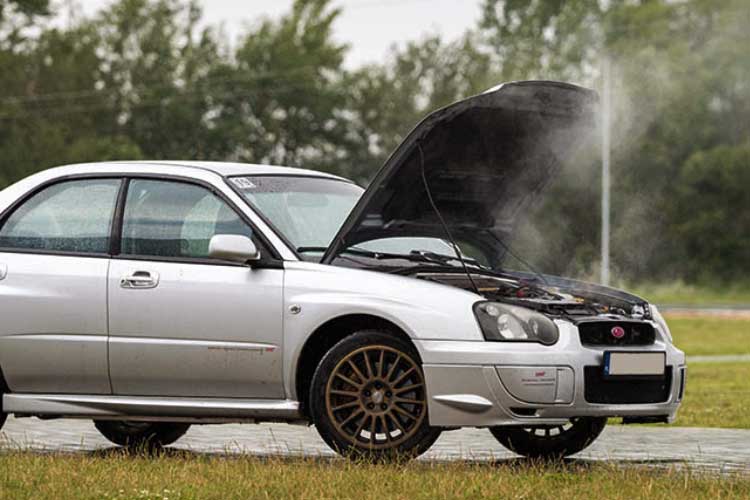Leaking coolant is among the causes of car overheating due to insufficient cooling of the engine. If you have leaking coolant problems that lead to engine overheating, worry not; this guide will help solve these problems.
So, why is my car overheating and leaking coolant? Worn-out head gaskets and damaged cooling systems such as water pumps, coolant hoses and radiators cause coolant leakages. Thus, coolant leakage causes engine overheating if not fixed, leading to further engine damage.
This article reviews the possible causes of car overheating and leaking coolant and addresses how to fix such problems.
Why Is My Car Overheating And Leaking Coolant?
The coolant flowing in the cooling system keeps the engine’s temperature stable. A leakage in the coolant system causes loss of the coolant that causes your car to overheat.

However, car overheating is caused by various reasons, with coolant leakage being the major one. Coolant leakage may result from the following issues;
1. Damaged Radiator Cap
The radiator holds the coolant, and slight damage to the container results in the loss of the coolant. Due to exposure to high temperatures from the engine, the plastic radiators tend to crack and burst due to pressure leaking the coolant.
This radiator cap ensures a tight seal to withstand the pressure from the coolant. If the cap wears out and loses grip, it causes coolant leakage, leading to engine overheating.
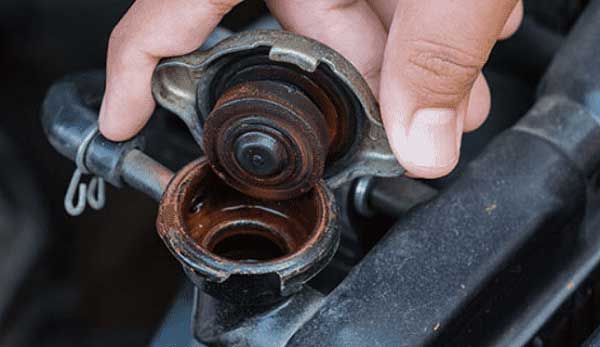
2. Damaged Cylinder Head
The engine’s coolant is supplied around the cylinders to cool the engine by absorbing heat and releasing it to the outside.
A damaged or cracked cylinder head causes coolant leakage that drops the amount of coolant available to regulate the engine’s temperature. A cracked cylinder head is dangerous as the cracks expand on overheating, causing excess coolant loss.
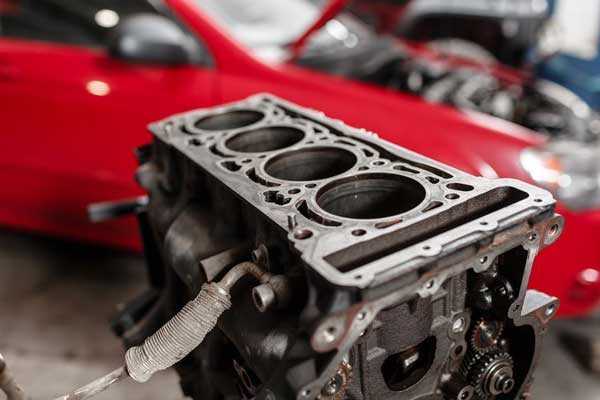
3. Damaged/cracked Engine Block
The engine block is supplied with the coolant to keep its temperatures cool. A small crack on the block leads to coolant leakage. Hence, loss of coolant reduces the cooling capacity causing your engine to overheat. So, when parked, you will notice some oil mixed with the coolant under the engine.
4. Blown Head Gasket
Head gaskets are used to keep the engine’s compression going and prevent oil and coolant leakages. A blown head gasket causes coolant leakage lowering its level for efficient cooling. As a result, the engine overheats due to low amounts of coolant in the system.
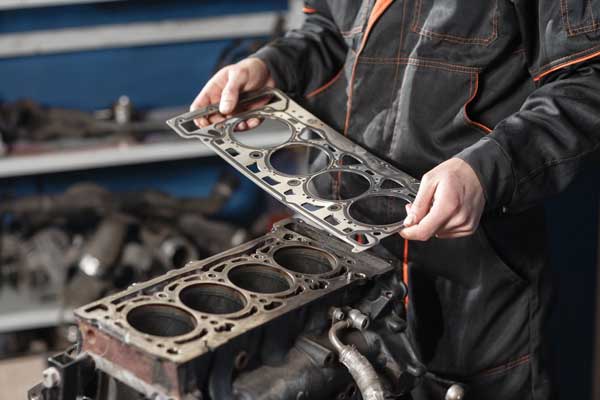
5. Worn-out Radiator Hoses
Worn-out radiator hoses are the most common causes of coolant leakage. The coolant flows through the radiator hoses under high temperatures, thus causing them to wear out.
In most cases, the hoses burst due to pressure and high temperatures. Accordingly, leaking coolant from the radiator hoses lowers the levels in the system leading to engine overheating.
How To Fix Car Overheating And Leaking Coolant?
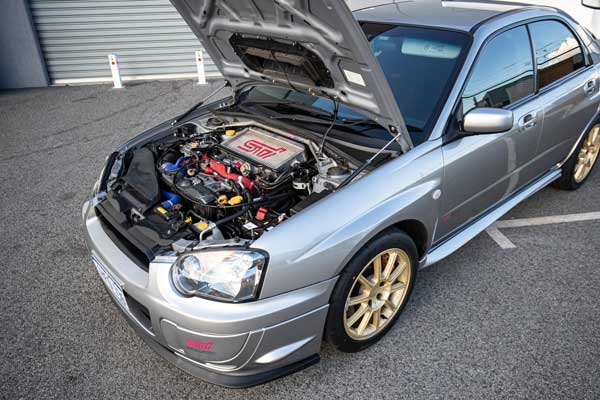
Before you even seek to fix the leaking coolant, there are a few steps you need to take.
Step 1. Identify The Leaking Parts
- Open the hood and inspect the vehicle to identify the leaking parts.
- If you cannot locate the problematic parts from the top, get under the engine and trace the leak from below.
- Once you locate the leaking part(s), mark the parts and move on to repair them.
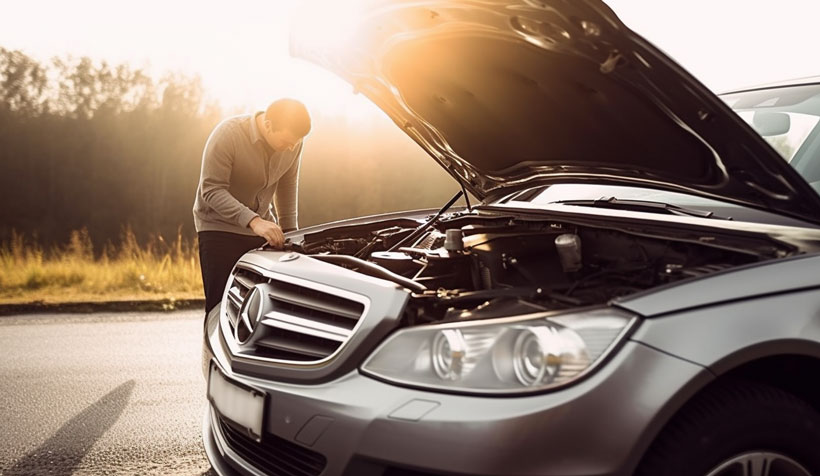
Step 2. Fix The Coolant Leaking Parts
Analyze the leaking part for the best solution at hand. Most of the leakages require replacement for a permanent solution.
However, before seeking a replacement, you can repair it temporarily to allow you to drive to the nearby mechanic shop.
How To Temporarily Fix A Coolant Leakage – Quick Fix!
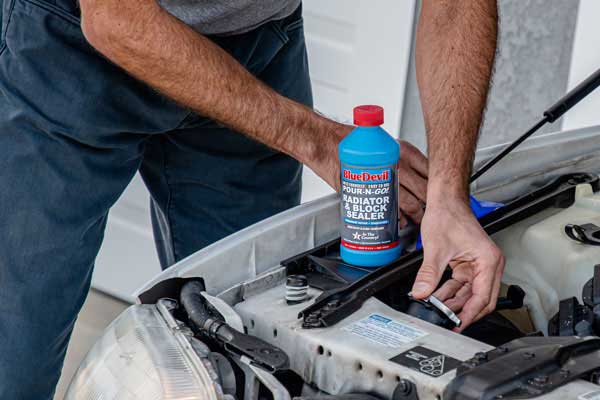
Some coolant leakages call for quick solutions that will allow you to drive for the next few miles.
1. Use Of Sealing Products
Sealing products are readily available to fix small leakages. Cracks on the radiator hose can successfully be sealed with sealants. You can apply sealants on holes and cracks on the engine block and the radiator.
However, it is not recommended as the sealant may melt or get dissolved, adding impurities to the coolant. Other sealants block the hoses when wrongly applied.
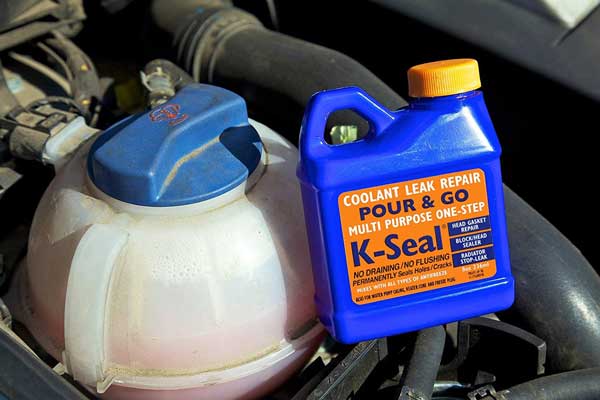
2. Use Of Fresh Eggs
You must have heard of people using eggs to seal a coolant leakage. It is one of the handy solutions, especially when in the middle of nowhere.
Allow the radiator to cool down and then open the radiator cap and crack 2-3 eggs into the radiator. The heated coolant will cook the eggs, and they seal them while forcing the cooked eggs out through the leaking points.
3. Use Of Black Pepper
If you don’t have eggs, get black pepper to fix the leakage. Allow the engine to cool for 15 minutes, pour black pepper through the radiator cap, and let it settle on the radiator’s leaking points.
The black pepper flakes get stuck in the cracks and form a seal. Start the engine and check if the leak has stopped. If not, add more pepper.

How Much Does An Engine Coolant Leak Repair Cost?
Repairing an engine coolant leak depends on the magnitude and type of leak. The repair will also rely on labor costs. If your vehicle has a damaged engine block or cylinder head, it will cost you between $500 and $700 to repair.
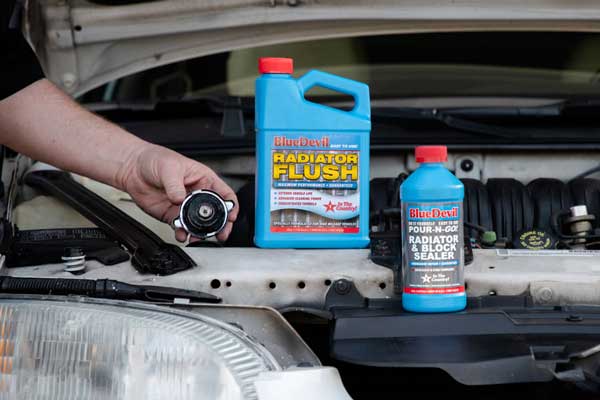
If you seek to replace the whole of the engine block with a new one, you must purchase a new one. The cost of an engine varies from one engine model to another.
Repair the minor leaks on the radiator hose; the cap will cost around $100, with labor costs varying from one mechanic to another.
If your car is overheating and leaking coolant, you may be interested in our articles on what to do when your car overheats and shuts off and car overheating after an oil change. These articles provide valuable information and solutions to common car overheating issues, such as engine overheating, radiator problems, thermostat issues, and oil cooler failures. Whether your car has overheated and shut off or you’ve experienced overheating after an oil change, our team at Car Problem Solved can help you diagnose and fix the problem.FAQs
Below are frequently asked questions to help solve car overheating and leaking coolant.
There is no exact timeline for how long you can drive with a leaking coolant and repair the leakage to avoid causing more harm to the vehicle. However, you can drive slowly for minor leakages as you seek help from a nearby garage.
Driving with a leaking coolant is dangerous as it can leak to low levels leading to engine overheating and causing more problems.
No. But slow leakages can allow you to drive slowly to seek help from a mechanic. The extent of coolant leakage dictates whether you can drive your car in that condition. If your vehicle has excess coolant leakage from a continuous leak, fix it before driving.
Yes. You can repair a leaking coolant with the right skills and knowledge of the problem at hand. Small leaks on the radiator hose and caps can be fixed with less effort.
However, complicated engine block and cylinder head damage will require a mechanic’s expertise.
Conclusion
A car overheating and leaking coolant can be dangerous if not fixed on time. The leakage lowers the level of the coolant in the system rendering its functionality poor. Likewise, leaking coolant is caused by possible damage to the cylinder head, engine block and radiator.
Also, it may be due to a worn-out radiator hose or a loose connection in the cooling system. Identify the leaking points and fix them accordingly to avoid such problems in the future.
